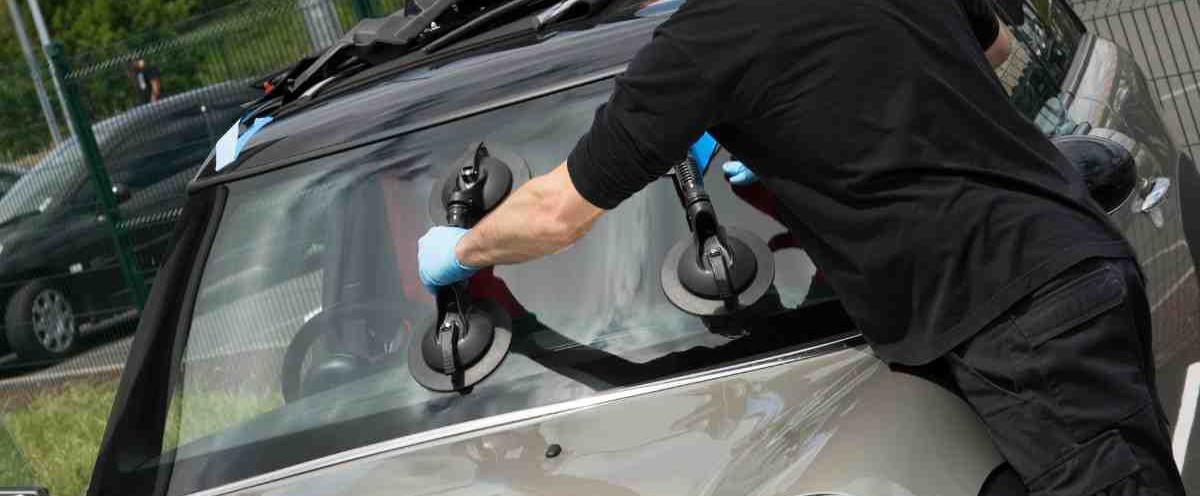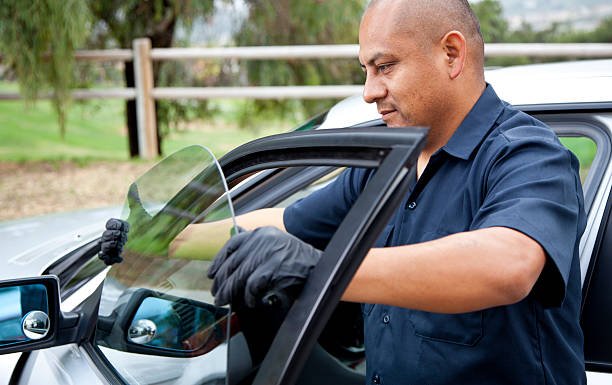
Paradise Mobile Auto Glass
Drive Safe, Drive Clear with Paradise's Premier Auto Glass Services.
(702) 659-8464
Repairing auto glass, be it a minor chip or a major crack, is a task that demands meticulous attention and precision. It's not just about fixing a blemish on your car, it's about ensuring the safety and longevity of a key protective element in your vehicle. Despite its importance, many vehicle owners fall into traps of common errors that not only lead to further deterioration but could also pose serious safety risks.
This blog post aims to navigate you through the potential pitfalls in the auto glass repair process. From understanding the subtleties of the damage to selecting the right repair solutions, we'll guide you through the essential do's and don'ts. Our goal is to empower you with knowledge and insights that ensure your auto glass repair not only rectifies the immediate issue but also preserves the overall integrity and safety of your vehicle, thereby providing peace of mind as you travel down the road.
(702) 659-8464One of the most common mistakes is delaying the repair of a damaged windshield or window. Many people think a small chip or crack isn't a big deal and can wait. However, even the smallest damage can quickly worsen, especially when exposed to temperature changes, road vibrations, and normal driving conditions. A delay can turn a simple repair into a costly replacement. Understanding the risks of driving with cracked windshields is crucial for every driver.
With the availability of DIY auto glass repair kits, it's tempting to try and fix the problem yourself. However, without the proper knowledge and tools, you might end up doing more harm than good. Improper application can lead to air bubbles, further cracking, or an uneven surface, all of which can impair your visibility and the glass's structural integrity.
If you do decide to go the DIY route, another mistake is using low-quality repair kits. Cheaper kits may not have the same quality of resin or tools needed for an effective repair. This can result in a less durable fix that might not hold up over time, leading you back to square one.
Different types of glass damage require different repair techniques. For example, a chip repair is not the same as fixing a long crack. Failing to recognize the type of damage and how to appropriately address it can result in an ineffective repair. Understanding the nature of the damage is crucial to deciding whether to repair or replace the glass.
Before any repair, the damaged area must be thoroughly cleaned. Any dirt, debris, or moisture trapped during the repair process can weaken the bond of the resin to the glass. A common mistake is not cleaning the area properly, which can lead to a poor-quality repair that doesn't last.
When applying resin to a chip or crack, the amount of pressure used is critical. Too much pressure can cause the glass to crack further, while too little might not allow the resin to penetrate all the layers of the glass. It's essential to follow the instructions carefully and apply the correct amount of pressure.
After a repair, the resin needs time to cure and harden fully. One of the common mistakes is not allowing adequate curing time, either due to impatience or a busy schedule. Rushing this process can result in a weak repair that might not withstand the stresses of driving.
The temperature and weather conditions can significantly affect the success of an auto glass repair. Performing repairs in extreme temperatures or wet conditions can prevent the resin from setting properly. It's important to carry out repairs in a controlled environment or wait for suitable weather conditions. Additionally, considering auto glass's environmental impact is key for responsible repair and replacement decisions.
Many car owners attempt to fix their auto glass without consulting a professional. While minor chips and cracks can sometimes be handled with a DIY approach, more severe damage often requires professional expertise. Failing to consult a professional can lead to an unsafe repair that compromises the structural integrity of the glass.
While budget is an important consideration, choosing a repair service based solely on price can be a mistake. The cheapest option is not always the best when it comes to quality and safety. It's important to consider the reputation, expertise, and quality of materials used by the repair service.
Another mistake is not checking your insurance coverage before proceeding with a repair. Many insurance policies cover auto glass repair, potentially saving you out-of-pocket expenses. Failing to check your policy means you might miss out on the coverage you're entitled to.
Repairing auto glass is a task that requires careful consideration and precision. Avoiding these common mistakes can help ensure that your repair is effective, safe, and long-lasting. Remember, when it comes to auto glass repair, the key is not just fixing the damage but doing it the right way. If you're ever in doubt, consulting a professional is always the best course of action. Your car’s windows are more than just a convenience, they are an essential safety feature.
Copyright 2024 © Paradise Mobile Auto Glass, All Right Reserved.